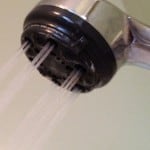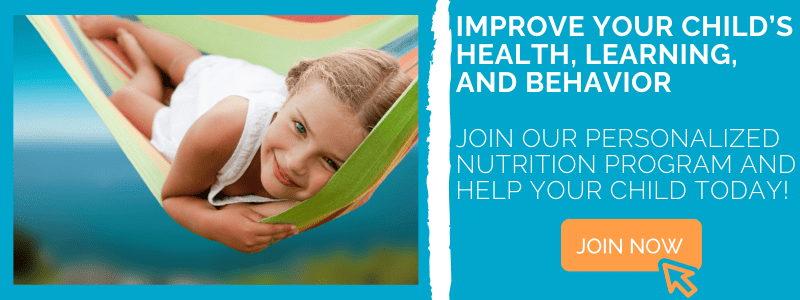
Food allergies are very common in children with autism, ADHD, and related disorders, and have been significantly on the rise in the last decade.
There are many theories and “possible” causes including: the hygiene theory (being too clean), vaccines, eating a food during pregnancy, and more — but now researchers appear to have found at least one
actual cause–chlorine.
In a study published in the
Annals of Allergy, Asthma & Immunology this month, researchers found that “High urine levels of dichlorophenols are associated with the presence of sensitization to foods in a US population. Excessive use of dichlorophenols may contribute to the increasing incidence of food allergies in westernized societies.” That’s simply amazing!
Dichlorophenols, are chemical by-product of chlorine (a derivative of phenol containing two chlorine atoms). Chlorine in tap water and pools are one source of dichlorophenols. These chemicals can be also found in pesticides, and triclosan, a common antibacterial chemical used in antibacterial soaps, lipsticks, bodycare products, and embedded in some kitchen towels and other gadgets (as an antimicrobial).
This may provide more proof of the “hygiene theory,” or be another cause entirely. The hygiene theory suggests that exposure to allergens and dirt that stimulate the immune system early in life may prevent allergies. It also suggests that maybe it’s because our environment is too clean, and part of that may be due to the chemicals used to clean
rather than avoidance of the dirt.
Regardless, this study shows these chlorine by-products to be a culprit in food allergies. The cause may be the chemicals themselves, the action that they kill the good bacteria that protects us and supports our immune system, or something new we have yet to discover.
Here’s what we
do know; these chemicals are bad for our health and can cause food allergies—it’s important to avoid them.
Simple action steps:
- Avoid chlorine
- Avoid chemical-based antibacterial soaps
- If you have a pool consider a non-chlorine alternative
- Get a water filter for drinking water and shower
- Avoid pesticides
- Avoid products impregnated with an antibacterial
- Choose safe body care products (see CosmeticsDatabase.com)
While this cautionary approach won’t cure existing food allergies, your family will be healthier by avoiding toxins and you may just help prevent food allergies from developing in the first place. Food reactions are serious business, so the more we learn and empower our healthful choices – the better!
Study: Elina Jerschow, et al. “Dichlorophenol-containing pesticides and allergies: results from the US National Health and Nutrition Examination Survey 2005-2006” Annals of Allergy, Asthma & Immunology. Volume 109, Issue 6, December 2012, Pages 420–425.
 Food allergies are very common in children with autism, ADHD, and related disorders, and have been significantly on the rise in the last decade.
There are many theories and “possible” causes including: the hygiene theory (being too clean), vaccines, eating a food during pregnancy, and more — but now researchers appear to have found at least one actual cause–chlorine.
In a study published in the Annals of Allergy, Asthma & Immunology this month, researchers found that “High urine levels of dichlorophenols are associated with the presence of sensitization to foods in a US population. Excessive use of dichlorophenols may contribute to the increasing incidence of food allergies in westernized societies.” That’s simply amazing!
Dichlorophenols, are chemical by-product of chlorine (a derivative of phenol containing two chlorine atoms). Chlorine in tap water and pools are one source of dichlorophenols. These chemicals can be also found in pesticides, and triclosan, a common antibacterial chemical used in antibacterial soaps, lipsticks, bodycare products, and embedded in some kitchen towels and other gadgets (as an antimicrobial).
This may provide more proof of the “hygiene theory,” or be another cause entirely. The hygiene theory suggests that exposure to allergens and dirt that stimulate the immune system early in life may prevent allergies. It also suggests that maybe it’s because our environment is too clean, and part of that may be due to the chemicals used to clean rather than avoidance of the dirt.
Regardless, this study shows these chlorine by-products to be a culprit in food allergies. The cause may be the chemicals themselves, the action that they kill the good bacteria that protects us and supports our immune system, or something new we have yet to discover.
Here’s what we do know; these chemicals are bad for our health and can cause food allergies—it’s important to avoid them.
Simple action steps:
Food allergies are very common in children with autism, ADHD, and related disorders, and have been significantly on the rise in the last decade.
There are many theories and “possible” causes including: the hygiene theory (being too clean), vaccines, eating a food during pregnancy, and more — but now researchers appear to have found at least one actual cause–chlorine.
In a study published in the Annals of Allergy, Asthma & Immunology this month, researchers found that “High urine levels of dichlorophenols are associated with the presence of sensitization to foods in a US population. Excessive use of dichlorophenols may contribute to the increasing incidence of food allergies in westernized societies.” That’s simply amazing!
Dichlorophenols, are chemical by-product of chlorine (a derivative of phenol containing two chlorine atoms). Chlorine in tap water and pools are one source of dichlorophenols. These chemicals can be also found in pesticides, and triclosan, a common antibacterial chemical used in antibacterial soaps, lipsticks, bodycare products, and embedded in some kitchen towels and other gadgets (as an antimicrobial).
This may provide more proof of the “hygiene theory,” or be another cause entirely. The hygiene theory suggests that exposure to allergens and dirt that stimulate the immune system early in life may prevent allergies. It also suggests that maybe it’s because our environment is too clean, and part of that may be due to the chemicals used to clean rather than avoidance of the dirt.
Regardless, this study shows these chlorine by-products to be a culprit in food allergies. The cause may be the chemicals themselves, the action that they kill the good bacteria that protects us and supports our immune system, or something new we have yet to discover.
Here’s what we do know; these chemicals are bad for our health and can cause food allergies—it’s important to avoid them.
Simple action steps:




Shots might seem like an unusual way to treat allergies, but they’re effective at decreasing sensitivity to triggers. The substances in the shots are chosen according to the allergens identified from a person’s medical history and by the allergist during the initial testing. The U.S. Food and Drug Administration (FDA) oversees the standards used in preparing the materials for allergy shots given in the United States.
Intriguing article! Does this mean that getting rid of chlorine exposure will get rid of food allergies, or once you have them, is your goose cooked?
Dear Julie,
Thank you for posting a great article! It is another piece that will help children and adults with food allergies. I know for sure I shall take some advice from this article and spread the word. Thank you for such an informative website and beautiful photos of your family. Your book, Nourishing Hope, is wonderful and very helpful. I highly recommend it to every family.
Dr. Denise Tarasuk ND, MA Ayurveda
Written from the Pen of Dr. Denise:
Tics and Tourette’s Syndrome: An Ayurvedic Approach to Health and Happiness (Award Winning)
Monsoon Medicine: A Diary of a Canadian Medicine Woman & Tales of a Bengali Doctor
I’m not a scientist but it seems that “high urine levels of dichlorophenols” may also be the result of some sort of system breakdown in the body, rather than an actual cause of Food Allergies. The relationship between Food Allergies and Autism, Asthma and ADHD is now well established along with the severe disruption in gut flora, and the breakdown in the bodies chelation abilities. Isn’t it also the case that many Autistic and ADHD children have higher than normal levels of metals and other toxins in their bodies? Now we add dichlorophenols as yet another toxin for which we have to guard against.
Triclosan is used in toothpastes, too!